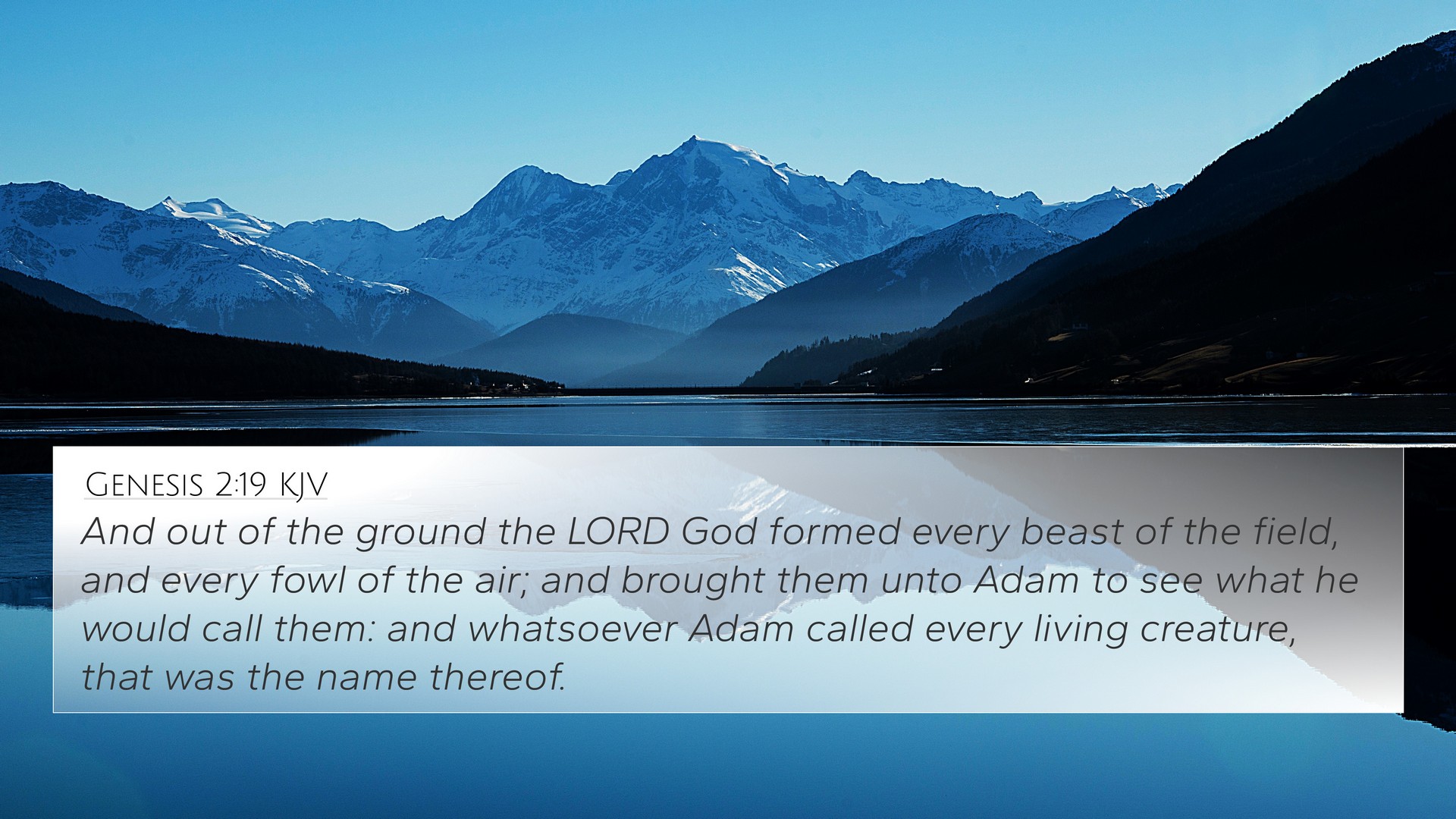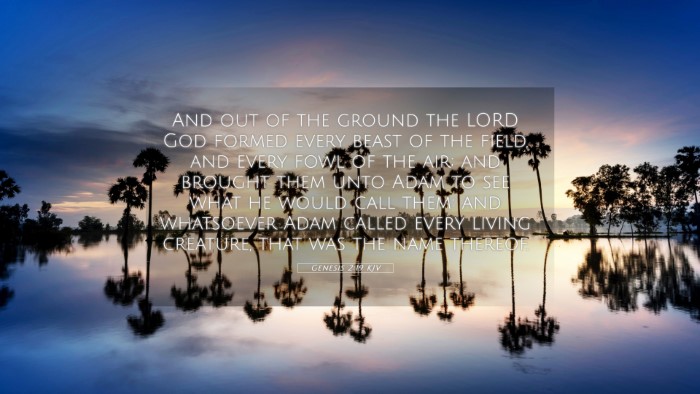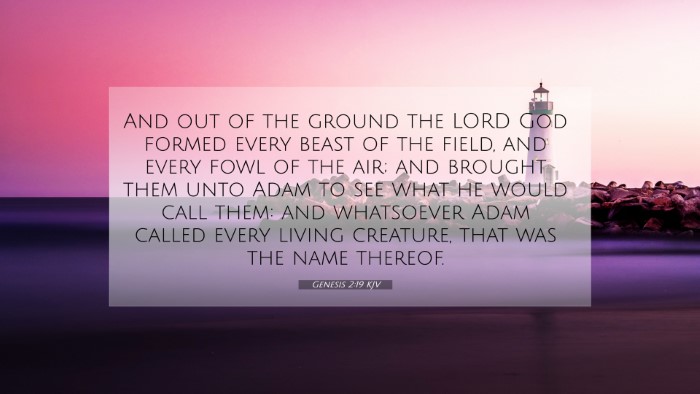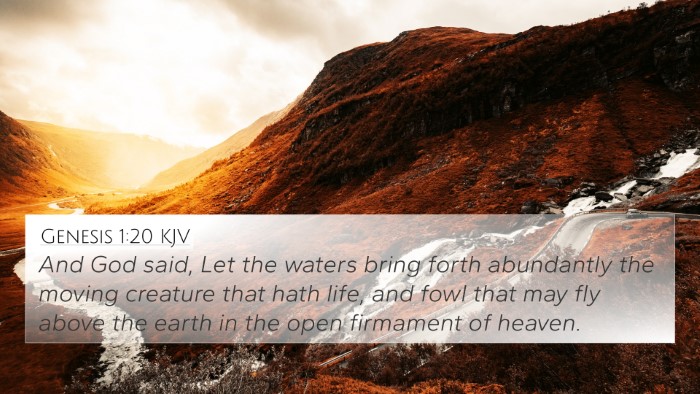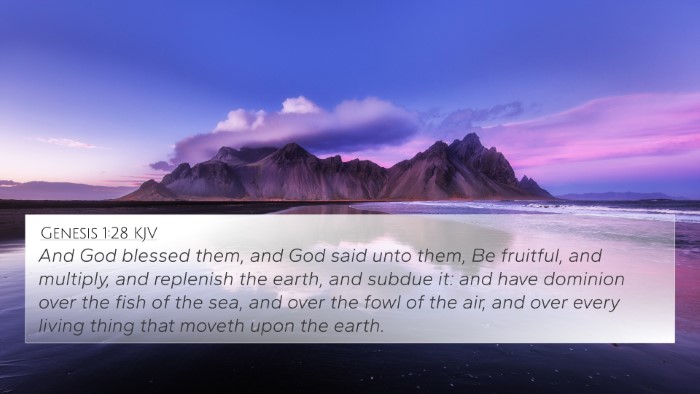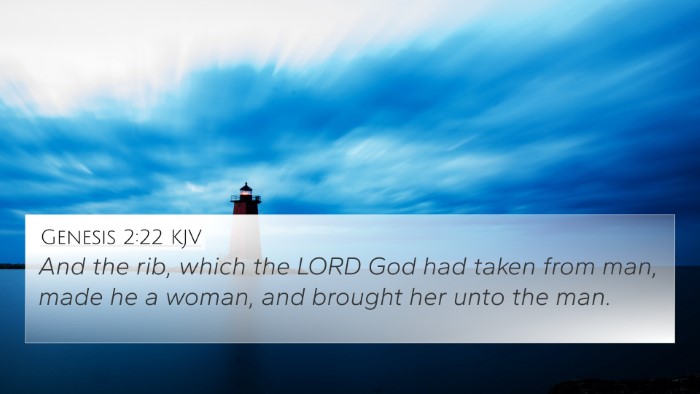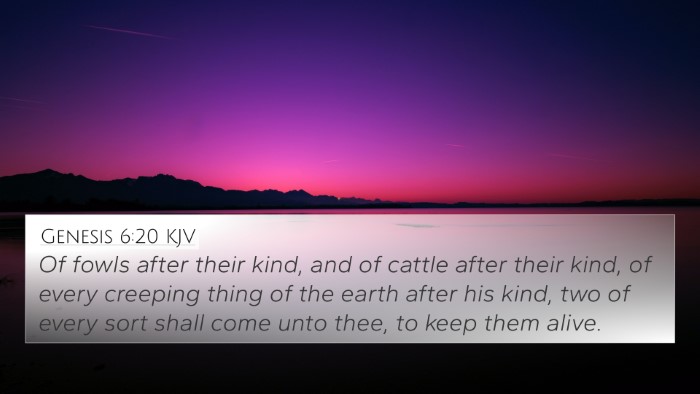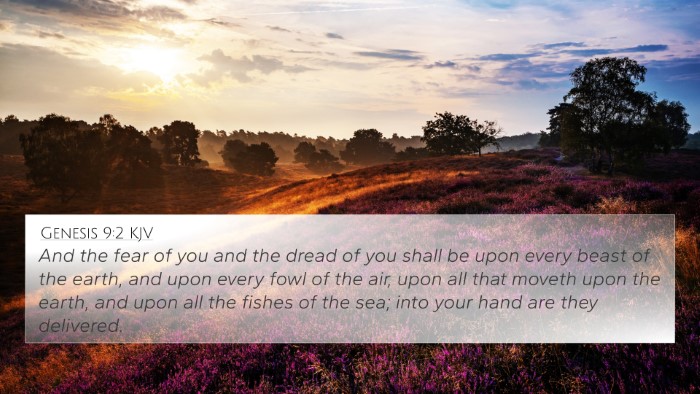Understanding Genesis 2:19
Bible Verse: Genesis 2:19 - "And out of the ground the Lord God formed every beast of the field, and every fowl of the air; and brought them unto Adam to see what he would call them: and whatsoever Adam called every living creature, that was the name thereof."
Summary of Key Insights
This verse provides profound insight into the creative work of God and the special role of humanity, particularly Adam, in the stewardship of creation. It emphasizes God's sovereignty in creation and the unique position that human beings occupy as caretakers and processors of life on Earth.
Commentary Insights
- Matthew Henry: Henry points out that this moment illustrates God's care in creating living creatures and His intention for Adam to be an active participant in the naming process. This implies Adam's responsibility over God’s creation and symbolizes a divine partnership.
- Albert Barnes: Barnes emphasizes that the act of naming signified authority and stewardship. It is through naming that Adam demonstrated his understanding and relationship with each creature, establishing his role within creation.
- Adam Clarke: Clarke adds that this event serves as a divine declaration of the order of creation. It highlights the special relationship between humans and animals, showing that every creature has its place and purpose in God’s design.
Theological Implications
The verse serves to underline several theological themes:
- Divine Sovereignty: God is the ultimate creator who ordains life and assigns purpose.
- Human Responsibility: Humans are not mere observers but active contributors to God’s creation, tasked with governance and care.
- Relationship with Creation: This passage illustrates a connection between humans and the natural world, enhancing the call for stewardship over the earth.
Cross-References
This verse can be enriched through the study of related scriptures. Here are some Bible verses that connect thematically:
- Genesis 1:26-27: God’s creation of mankind in His own image, emphasizing human dignity and purpose.
- Psalms 8:6-8: The psalm emphasizes the authority given to humanity over the works of God's hands.
- Job 12:7-10: Job speaks to the wisdom of creation found in animals, suggesting that all creation reveals something about God.
- Genesis 1:20-25: The creation of creatures in the skies and seas, establishing the backdrop for Adam’s naming task.
- Romans 8:19-22: Acknowledges the whole creation awaiting redemption and the unique role of humanity within that context.
- Proverbs 12:10: Highlights the value of treating animals well, resonating with the stewardship theme.
- Isaiah 11:6-9: Envisions a harmonious creation where humans coexist peacefully with animals.
- Matthew 6:26: Jesus teaches about God’s provision for the birds of the air, relating back to God’s care in creation.
- Hebrews 2:6-8: Quoting Psalms, it reflects on the nature of man in relation to God’s creation.
- Colossians 1:16-17: Christ's supremacy in all things, reinforcing God's sovereign reign over creation.
Exploring the Connections and Themes
This verse is pivotal for understanding various themes in the Bible and their interconnections:
- Creation care: Genesis 2:19 reinforces the responsibility given to humanity, paralleling verses that express God's expectations for stewardship (e.g., Psalms 24:1).
- Covenant Relationship: It introduces the relationship between creator and creation, which is expanded in covenants made with Noah (Genesis 9:2-3).
- Authority in Naming: The significance of names in the Bible can be traced back to this verse and is echoed throughout scriptures, impacting how we perceive authority and leadership.
- Anthropocentrism vs. Ecocentrism: The verse opens up dialogues on the human position within creation relative to environmental stewardship.
Utilizing Cross-Referencing Tools
For those looking to dive deeper into cross-referencing biblical texts, several tools and methods enhance the study:
- Bible Concordance: Utilizing a Bible concordance allows users to find words and themes easily, enabling better connection building.
- Cross-reference Bible Study: This method enhances understanding by placing verses side by side for comparative analysis.
- Online Bible Cross-Reference Guides: Various resources online help identify connections based on themes or keywords.
- Bible Chain References: Engaging in a chain reference can lead readers through scriptural themes, aiding in thematic understanding.
- Bible Reference Resources: Books and applications dedicated to cross-referencing scripture make it easier for learners at all levels.
Conclusion
Genesis 2:19 encapsulates key aspects of God’s creation and humanity's role in it. Through this analysis, we see the rich tapestry of scriptural connections that invite us to explore further and deeper into the divine narrative.
By employing cross-references and thematic studies, scholars and laypeople alike can enhance their understanding of scripture, nurturing a holistic view of biblical principles.
